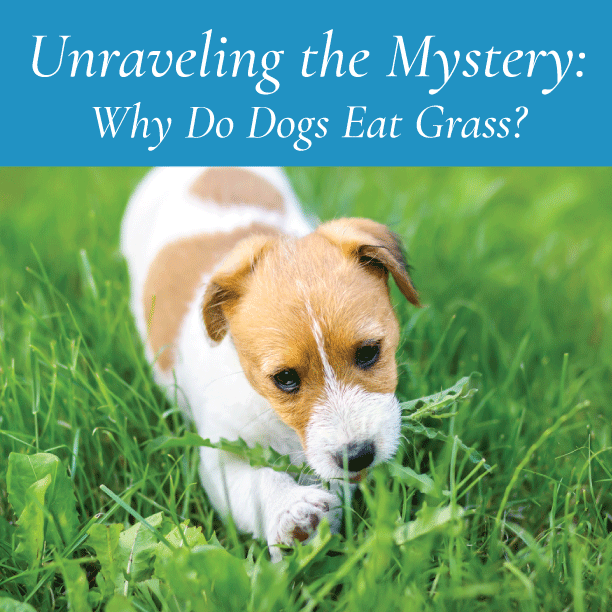If you've ever witnessed your beloved canine companion munching on grass, you might have wondered why they engage in this seemingly peculiar behavior. While it may seem puzzling at first, dogs consuming grass is a relatively common occurrence. In this blog post, we will delve into the various reasons behind this behavior and shed light on the possible explanations for why dogs eat grass.
Instinctual Behavior:
Digestive Aid: One theory suggests that dogs eat grass as a way to aid their digestion. Grass contains fiber, which can help promote healthy bowel movements and assist in eliminating any indigestible matter from their stomachs. In the wild, canines would often consume plant material as part of their natural diet to maintain a balanced digestive system.
Nutritional Supplement: Another possibility is that dogs eat grass to obtain additional nutrients not found in their regular diet. Grass contains vitamins, minerals, and other beneficial compounds that may be lacking in their food. By instinctively seeking out grass, dogs could be attempting to fulfill specific nutritional needs.
Behavioral and Psychological Factors:
Boredom or Lack of Stimulation: Dogs, like humans, can occasionally become bored or experience a lack of mental stimulation. Eating grass might serve as a form of entertainment or a way to alleviate boredom. Engaging in this behavior could provide them with a temporary distraction or a break from their daily routine.
Attention-Seeking: Dogs are highly perceptive and may quickly learn that eating grass captures their owner's attention. If they associate the act of eating grass with receiving attention or interaction, they may continue the behavior as a means to garner their owner's focus.
Natural Foraging Instinct: Dogs are descendants of wild canines, who were natural foragers. Eating grass could be an instinctual behavior inherited from their ancestors. Grass provides a sensory experience and allows dogs to tap into their primal instincts, even in a domesticated setting.
Self-Induced Vomiting: In some cases, dogs may consume grass intentionally to induce vomiting. If a dog is feeling unwell or has an upset stomach, they might eat grass as a means of self-medication to help them expel unwanted substances or relieve discomfort. However, it's important to note that this behavior should be monitored, and frequent or excessive vomiting should always be evaluated by a veterinarian.
When to Seek Veterinary Advice:
While it is generally considered normal for dogs to eat grass occasionally, there are situations when it may be cause for concern:
Frequent or Excessive Consumption: If your dog displays a persistent or compulsive urge to consume grass, it could be a sign of an underlying medical condition or behavioral issue that should be addressed by a veterinarian.
Eating Toxic Plants: It is crucial to ensure that the grass your dog is consuming is free from pesticides, chemicals, or toxic plants. If you suspect your dog has ingested something harmful or if they exhibit signs of illness after eating grass, seek immediate veterinary assistance.
While the exact reasons behind why dogs eat grass may remain somewhat mysterious, it is generally considered a behavior that falls within the realm of normal canine behavior. Dogs may engage in this behavior for various instinctual, nutritional, behavioral, or even self-soothing reasons. However, if you have concerns about your dog's grass-eating habits or if they exhibit any unusual symptoms, it is always best to consult with a veterinarian for proper evaluation and guidance. Remember, understanding our furry companions' behaviors and ensuring their well-being is an essential part of being a responsible pet owner.

